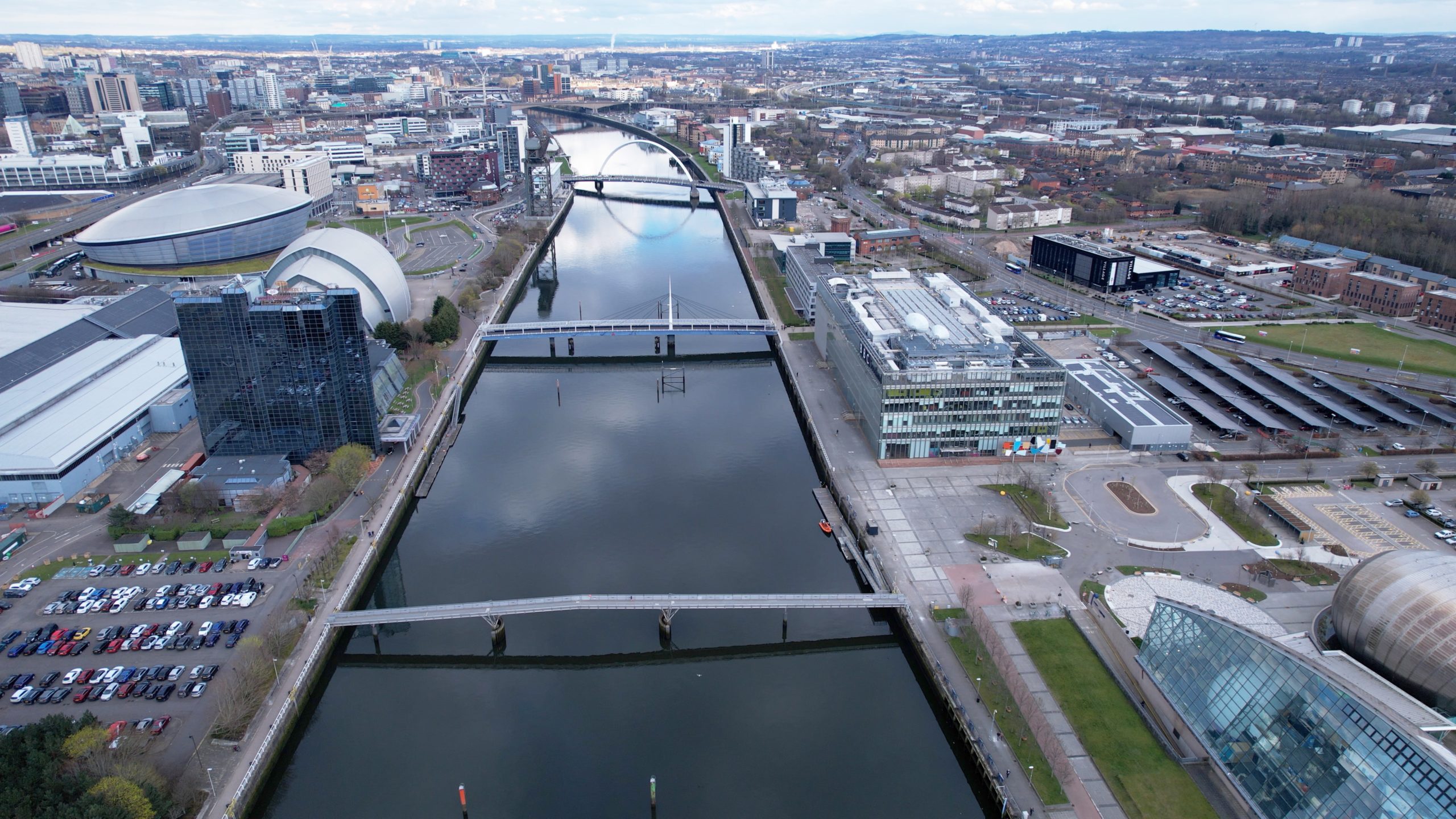
A multi-billion pound bid for an air, sea, and rail economic zone on the River Clyde is being finalised, Glasgow City Council has revealed.
The local authority confirmed that a bid is to be submitted to the Scottish and UK governments later this month for the planned Clyde Green Freeport.
A green freeport is a large zoned area within a defined boundary which includes a rail, sea, or airport. Operators and businesses in the zone can benefit from a package of tax and other incentives.
Glasgow City Council said that the Clyde Green Freeport would maximise the area’s transport network and facilities at Glasgow Airport, the freight interchange at Mossend, Bellshill, and four deep-water ports on the River Clyde.
The plans are being backed by the likes of Glasgow Airport, Peel Ports, Mossend International Railfreight Park, and the Glasgow city region councils. Glasgow City Council has asked that other businesses across the Glasgow city region back the plans, which can be done so by clicking here.
It added that the multimodal initiative would attract ‘major’ new investment to the Glasgow city region, develop global trading opportunities, create tens of thousands of new jobs, accelerate net zero objectives agreed at COP26, and take the region’s ‘world-class’ innovation economy to the next level.
Kevin Rush, Clyde Green Freeport bid senior responsible officer and director of regional economic growth for the Glasgow city region, said, “As Scotland’s economic powerhouse, Glasgow city region is uniquely positioned to create a highly successful green freeport to put the country at the forefront of global trade and decarbonisation.
“We have everything necessary to make a successful bid: unrivalled connectivity across the UK and beyond; one of the most educated populations in the UK; a GVA of £47.3 billion and 33% of Scotland’s GDP; three world-class innovation districts; home to internationally acclaimed universities and research institutes; and renowned business expertise across key sectors of aerospace, advanced engineering, manufacturing, maritime and medical.
“Glasgow city region is at the heart of the Scottish economy, providing almost 30% of the country’s business base and 34% of its jobs.
“As well as the enormous economic boost and competitive advantage a successful bid would bring to Glasgow city region, it would also support enterprise, regeneration and trade across the rest of Scotland and the UK.”
James McSporran, port director at Peel Ports’ Clydeport, added, “With its origins on the Clyde going back to 1858 initially as Clyde Navigation trust, Clydeport has been a mainstay of supporting industry by importing and exporting goods growing to one million tonnes of cargo from its KGV facility to 60,000 containers moving through Greenock. It remains a significant player in the development of the Clyde industrial growth and is central to the Clyde Green Freeport bid initiative, providing not only the means to service the local markets but to allow a global reach through in house connectivity to other UK ports such as Liverpool and Medway.”
Andrew Stirling, of Peter D Stirling Ltd and director of Mossend International Railfreight Park, commented, “Along with our partners, we’re in a very good position at Mossend to deliver this bid with our existing electric rail infrastructure and plans for our all electric rail freight terminal and freight park, all to be operated using alternative energies that put Scotland at the forefront in the UK for championing zero-carbon rail freight.”
Ronald Leitch, operations director at Glasgow Airport, said, “We are excited to be part of the Clyde Green Freeport bid. As the industrial powerhouse of Scotland, the Glasgow city region is the natural home for a freeport which will stimulate jobs, increase trade, attract new companies and make it easier for existing ones to export their goods and services.
“Already home to British Airways, Rolls Royce, the National Manufacturing Institute Scotland and Boeing, becoming a freeport will unlock huge development potential at the airport cluster and bolster the west of Scotland’s global reputation as a centre of excellence for aerospace and advanced manufacturing.
“Designation will also position Glasgow at the forefront of decarbonising air travel by accelerating investment in net-zero infrastructure.”








